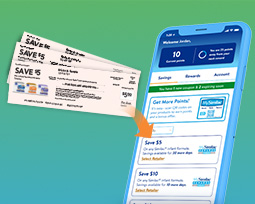-
Search
-
Login
-
My Cart
You're probably starting to get a little anxious about the day you finally get to meet your little one for the first time. But don’t let that excitement (or nervousness) distract you from taking care of yourself these last few weeks. It’s important for you to be well and rested for your delivery day.
We recognize that every fertility and pregnancy journey is unique. This guide offers a general overview of what a routine term pregnancy might look like and may not reflect the full range of individual experiences. It is not intended to serve as medical advice. Always consult with your healthcare provider regarding your pregnancy and reach out to them with any specific concerns.
While your body continues to stock up on blood and other fluids, your growing uterus may be slowing down your blood flow. This can all lead to swollen feet. It’s very common and not dangerous. Here are a few ways to manage the symptoms:
Only 5% of babies are born on their actual due date. This leaves many women wondering if the symptoms they’re experiencing are signs that labor has begun. While we don’t know exactly what triggers labor, there are some definite signs. The most common sign is when a woman’s water breaks. Water breaking is when the amniotic fluid that surrounds the baby bursts through the sac containing it and exits the woman. It can be a large gush or a trickle, and the fluid is sometimes confused with urine. Don't worry too much about your water breaking in public—for 9 out of 10 women, this happens after their contractions have already started, which should give you a chance to prepare. Your doctor may even need to break your water at the hospital; this is a procedure called an amniotomy. If you believe your water has broken, contact your physician immediately.
It’s week 37, and final preparations in the womb have begun. Your baby has had sufficient time to develop for labor, however, every day in-utero after 37 weeks helps with maturity. During the last few weeks, your baby is slowing down their growth; however, there is still a little room to grow. Essential fat (also called baby fat) will continue to form. This will round them out and help them stay warm after birth. Rest easy, mom–you’ve made it past the point of a preterm labor.
REFERENCES:
Swollen feet. Healthline website. Accessed October 30, 2025. https://www.healthline.com/health/pregnancy/swollen-feet-during-pregnancy#causes
Percentage of babies born on due date. Science pinpoints when your labor will start. Parents website. Accessed October 30, 2025.
https://www.parents.com/pregnancy/giving-birth/labor-and-delivery/science-pinpoints-when-your-labor-will-start/
Colleen de Bellefonds. What to do if your water breaks during pregnancy. What to Expect website. Accessed October 30, 2025. https://www.whattoexpect.com/pregnancy/symptoms-and-solutions/water-breaking-during-pregnancy.aspx
Preterm labor and birth. American College of Obstetricians and Gynecologists website. Accessed October 30, 2025. https://www.acog.org/womens-health/faqs/preterm-labor-and-birth
Join MySimilac™ Rewards for up to $400* in benefits and support throughout your journey.
* Offers may vary and are provided by Abbott and its third-party partners. Additional terms, conditions, and restrictions may apply. Offers may be subject to additional shipping and handling fees. Visiting participating healthcare facilities may be required to claim select offers.

† Submit registration to read details.

† Submit registration to read details.

You’re just a few Clicks away from enjoying the convenience of digital savings from MySimilac™ Rewards.